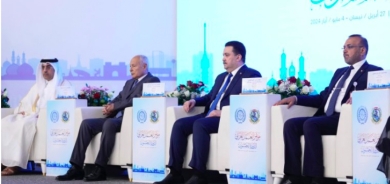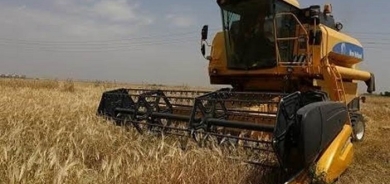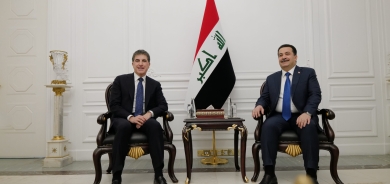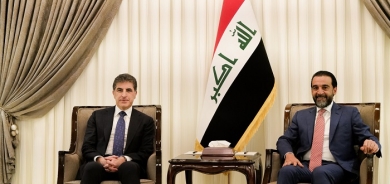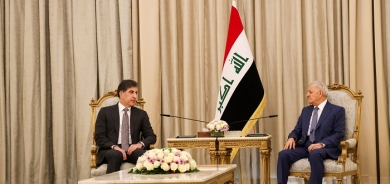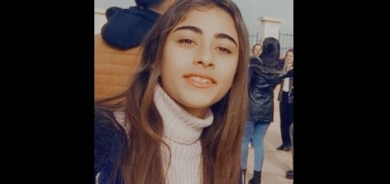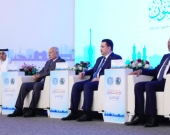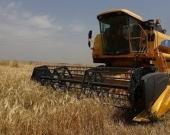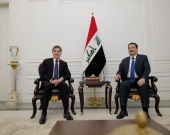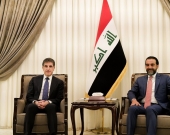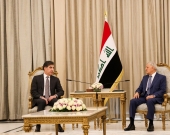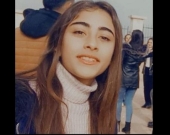Kurdish rebel leader warns of disaster if no Turkey peace
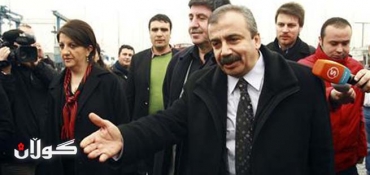
A paunchy and graying Ocalan, cut off from the world since his capture in 1999, told a delegation of pro-Kurdish MPs visiting him at the weekend of his plans to end a 28-year conflict that has killed 40,000 people.
Ocalan has been negotiating the outlines of a peace deal with Turkey's government from his cell since he intervened to end a hunger strike by jailed Kurdish militants last year.
With a Turkish intelligence official listening in the background, he spoke for two hours on Saturday about Turkey, the changing Middle East and his political beliefs, relishing attention he has long been denied.
"We must establish a new democratic republic in line with the new world and the new Middle East. The Kurdish problem can only be solved with Turkey's democratization," the 63-year-old Ocalan said, his words relayed to Reuters by parliamentarian Altan Tan.
"If it is not solved, these problems in Turkey will deepen... God forbid, we will end up like Iraq or Syria," Tan related him as saying, calling for a new constitution and democratic reforms to avoid such a "disaster".
Ocalan's Kurdistan Workers Party (PKK) took up arms in 1984 with the aim of carving out a Kurdish state, but has since moderated its goal to autonomy. It is designated a terrorist group by Turkey, the United States and European Union.
Turkish forces clashed with PKK fighters last month, killing four of the rebels after they killed a police officer in the province of Mardin.
The Turkish military has continued attacks on PKK forces in southeast Turkey and northern Iraq in recent weeks and Prime Minister Tayyip Erdogan has said the military operations will continue until the PKK lay down their arms.
Turkish warplanes bombed PKK targets in northern Iraq on February 20 and Kurdish media said military operations targeting the militants were conducted in southeast Turkey near the border with Iraq this week.
Yet Ankara will need the help of Ocalan to end a conflict which has destabilized Turkey and stunted development in its mainly Kurdish southeast.
It is a remarkable change of fortune for a man dubbed "baby killer" and "monster of Imrali" by nationalists and reviled by most Turks, who hold him responsible for 28 years of bloodshed.
CRITICAL WEEKS AHEAD
For the three visiting Peace and Democracy Party (BDP) deputies, he cut a very different figure. Wearing a grey cardigan, grey corduroy trousers and white sport shoes, the moustachioed Ocalan was "very polite and addressed everybody respectfully", Tan said.
For 14 years, Ocalan has had little contact with the outside world besides newspapers delivered to his cell. His lawyers have been denied access to him for 1-1/2 years but his brother has been allowed occasional visits.
He also has contact with several other inmates sent to join him in 2009. More recently, he was given access to television.
Ocalan views efforts to draft a new constitution for Turkey as an opportunity to secure the devolutionary reforms long demanded by his group.
His draft peace plan has been sent to the BDP and the PKK leadership in northern Iraq and Europe. The leader of the BDP, which received the "road map" on Tuesday, said all sides needed to respond swiftly.
"The next two or three weeks will be very critical for the process," BDP leader Selahattin Demirtas told reporters late on Monday, saying the government now needed to take "practical, concrete, confidence-building steps".
"This is not a process that can be put on Mr. Ocalan's shoulders alone. Above all the government, but also all groups in favor of peace and solution, society and the public must give strong support for the process," he said.
Ocalan could call a ceasefire at the Kurdish New Year on March 21 and, in a first step, the PKK may release some 16 Turkish captives it is holding by this weekend, according to media reports. Such details were not discussed in Saturday's meeting.
The plan would then see the withdrawal of several thousand PKK fighters from Turkey to their bases in northern Iraq before their ultimate disarmament in exchange for reforms boosting the rights of a Kurdish minority which makes up around 20 percent of a population of 76 million.
Erdogan's government has presented to parliament a penal code reform which could lead to the release of many Kurdish activists jailed over alleged PKK ties. Among other reforms, Kurdish politicians seek Kurdish language education and a constitution boosting equality.
Only a few people have been privy to details of the negotiations between Ocalan and Turkey's intelligence agency, the MIT. MP Pervin Buldan said they had to wait for the arrival of MIT officials before starting Saturday's talks.
Ocalan had been talking with an MIT official when they were taken in to meet him and they shook hands before beginning their talks, Buldan said.
She gave Ocalan a pen and Muslim prayer beads as a present. The third deputy, leftist film-maker Sirri Sureyya Onder, gave him a parliamentary report on coup investigations.
Conveying her excitement ahead of the talks, Buldan had described the visit in a message on Twitter as "the most meaningful, important and valuable of my life".
"We spoke for around two hours. As we left he signed on an empty piece of paper in my hand: 'With my love and respect, Abdullah Ocalan'".
Source: Reuters

